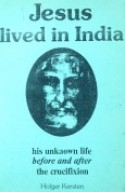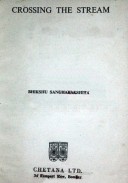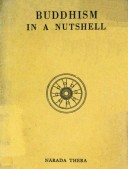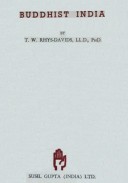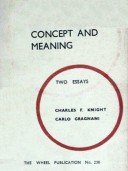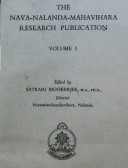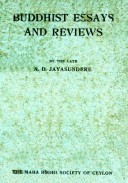FOREWORD
It was purely by a fortuitous coincidence that in 1973 I heard the theory that Jesus was supposed to have lived in India. Very sceptical, but somewhat unsettled in my views about the matter, I attempted to retrace the steps of Jesus’ actual life. I soon ran up against the obstacle of there being no sources that could stand up to scholarly scrutiny and be adequate for establishing the historicity of Jesus. Who was this man really? Where was he from? Where did he go? Why was it that he appeared so strange and mysterious to his contemporaries? What did he really want?
In the course of my investigations I finally arrived in India, where I became acquainted with those people who had dealt with the subject of Jesus in India in the greatest depth. I received a wealth of astonishing information from them, together with much encouragement and valuable support.
As far as the form of this publication is concerned, I have refrained from writing in a highly academic style, so that comprehension of the simple and logical contents of the book might not be impeded, and so that the details may not pass unnoticed. Many statements may seem bold and others even improbable. This book will open up a broad field of research in many related disciplines. The task of research is too great for one person alone. It means a challenge to the established Churches to investigate all the claims in this book ad absurdum if they can, and to prove the contrary. It will be of great interest to see how the Churches will respond to this challenge!
It is neither my goal nor my intention to undermine the Christian outlook or to leave the reader before a pile of potsherds of a shattered faith. It is simply of vital importance to find again the path to the sources, to the eternal and central truth of Christ’s Message, which has been shaken almost beyond recognition by the profane ambitions of more or less secular institutions arrogating to themselves a religious authority. Therefore this book is not the annunciation of a new belief; it is merely an attempt to open a way to a new future, firmly founded on the true spiritual and religious sources of the past.
Imagine not that I am spinning yarns,
Get up and prove the contrary!
The entire ecclesiastical history is a mish-mash of error and of power.
Johann Wolfgang von Goethe
Holger Kersten, Freiburg im Breisgau, March 1983
To accomplish the English version of “Jesus lived in India” it took more than two years. Up to this moment in Germany seven reprints of the book have appeared. This translation has been revised and updated several times to the current standard of knowledge. I was told that my personal style of writing might sometimes sound a bit harsh to the British reader. I tried to preserve this uncommon directness deliberately in order to support the clarity of my statements, and to keep from extenuating the facts. I am convinced that in Britain I will find a predominantly tolerant and open-minded audience. At any rate it is possible in this country that a bishop (Rt Rev David Jenkins, Bishop of Durham) is courageous enough to preach in his Easter message about his personal doubts concerning the traditional Christian view of Christ’s physical resurrection. (Daily Telegraph, March 30, 1985)
H.K. September 1986
INTRODUCTION
The ascendancy of science and technology was accompanied by a rapid secularization of our world and the recession of religion. The glorification of rationalism and the endeavour to explain away every aspect of human existence, led inexorably to heavy losses in mystical, religious and emotional life, even in “humanity”. Not least among the causes of the widening gulf between religion and science, between belief and knowledge, was the behaviour of the established Churches. For fear of losing their influence in secular spheres, they asserted their authority where they had absolutely none in the field of empirical knowledge. This merely deepened the need for greater differentiation in the spheres of authority. The resulting schism between scientific thinking and religious belief hurled modern man into a dichotomy that appeared insurmountable, spiritual sentiments became increasingly hemmed in, as the ranks of those doubting the truth of Christ’s message grew in number, and as Christian doctrine increasingly became a matter of debate. Even central tenets anchored in ecclesiastical tradition, such as God, Christ, Church and Revelation, became objects of vehement debate among theologians and laymen alike.
When the most central and fundamental teachings of a Church are no longer accepted as the pure truth even among that Church’s own elite and administrators, the end of traditional Christianity is undeniably at hand. The message of the empty pews is quite clear. According to a statistical survey made in 1979, only one in three citizens of the Federal Republic of Germany subscribes to the teachings of the established Christian Churches while 77 percent answer in the affirmative to the question of whether one can be a Christian without belonging to a Church. Regardless of what-sectors of the population were approached, nowhere did the majority believe that Christ was the “divine emissary” sent by God. For the established and official Churches have fearfully neglected to inform their parishes about progress in the field of Christianity and have failed to instruct their congregations in a historical and critical approach to religion. Because the established churches have continued to insist on literal interpretations of biblical accounts and a strict adherence to the letter of accepted dogma, they have, in fact, promoted the decline of ecclesiastical Christianity, even among those who are not at all anti-religious or anti-Christian in their leanings.
What we call Christianity today has very little indeed to do with the teachings of Jesus and the ideas that he wished to spread. It is really something quite different, and could rather be designated “Paulinism”. Many tenets of the dogma are essentially alien to Christ’s message. They are, in fact, primarily the legacy of Paul, who totally differed in his way of thinking. So-called Christianity as we know ft developed when Paulinism became accepted as the state religion. The Protestant theologian Manfred Mezger quotes Emil Brunner on the subject: “Emil Brunner has called the Church a misunderstanding. From an appeal, a doctrine was constructed; from free communion, a legal body; from free association, a hierarchical machine. One might say that it became, in all of its elements and as a whole, the exact opposite of what had been intended.” Surely it is permissible to investigate the justification for and legitimacy of existing institutions! How is it that a Church-going Christian finds it almost impossible to stand back critically from the proliferation of obscure articles of faith, duties and obligations in which he is ensnared? Without having known anything else and having grown up under the sole influence of the establishment, we are led to assume that because things have so long been as they are, they must consequently be correct.
A person appeared on the bleak horizon, bringing a message full of hope, a message of love and goodness, and what did humanity do with it? Turned it into paper, verbiage, power and business! Did Jesus desire all the acts that were to be committed in his name? Two millennia have passed since the bold young Jesus first tried to extricate humanity from the hold of official Churches, with their ecclesiastical bureaucracy, their laws and their figureheads, their inflexibility, their strife in matters of exegesis, their hierarchy and claims to unique authority, and their cult, idolatry and sectarianism. Jesus wanted the direct communication between God and Mankind, and did not intend to foster any ambitious ecclesiastical careers.
But Jesus’ voice no longer reaches .US in its natural directness. Access to it can only be gained by privileged experts and through the arbitration of a professional corps. Jesus has been managed, marketed, codified and “booked”. Wherever true and living faith has disappeared, being replaced by narrow-minded, ungenerous beliefs based on priestly rationalism, Jesus’ commands of love of one’s neighbour and tolerance have also disappeared, and dogmatism and fanaticism have replaced them. The struggle for supremacy of an exclusive “true faith” has left misfortune, violence and bloodshed on the paths of the Churches. This struggle has been continued from the days of the apostles up until our own times, and continues to aft as the largest obstacle to a reconciliation between the various Christian confessions. The Protestant theologian Heinz Zahrnt has written, “I have suffered a profound trauma in my career as a theologian. I feel abased, humiliated, insulted, dishonoured, but not by atheists, those who deny God, mockers or doubters, who, although godless, are often very humane, no, by dogmatists; by those and the shepherds of those who merely follow the letter of the teachings and believe that that is the only way to reach God. I have been wounded at a most central point, the point that has kept me alive despite a deep melancholy, my belief in God…”
Confidence in the value of religious experience tends to diminish in proportion to the development of intellectual capacities. Belief in the power of the rational and provable has taken the place of deep and self-luminous faith as a means of dealing with reality. The process of “growing up” in modern society subordinates religious feeling to the category of the irrational, where it is regarded as improvable and hence unreal. Logical thought and action alone appear to determine reality. As the level of education increases, the qualities of the transcendental decrease and cease to be things of living experience. The principal cause of this is a misinterpretation of the concept of God. The Divine is not at some Utopian distance, but in each of us; and it inspires us to lead our lives in harmony with the Infinite, and to recognize our short existence as a part of the eternal whole.
For centuries, Western man has learned to view himself as a being separate from God;; and-in the “enlightened” twentieth century, Western man seems less certain than ever about possible answers to the most ancient human questions about God and the meaning of life. All over the world, new spiritual centres have sprung up, attempting to give answers to those questions which a rigid Church officialdom cannot answer. A kind of syncretic world religion of the future is in ascendance. It is moving towards full self-realisation, to the search for religious enlightenment, to a mystical all inclusive vision of the cosmic context of one’s individual existence, and this by means of contemplation, self-knowledge and meditation.
The decisive impetus to such an internalization of religion has always come, and continues to come, from the East, primarily India. Mankind must now reorient itself in the most literal sense of the word to turn towards the East. The Orient is the origin and source of our innermost experiences.
We need neither expect the final demise of belief in God, nor fear spiritual and moral decay. Indeed, we can hope for a germination of the seed of the Spirit, a coming to life of the transcendental inner world which has until now only been promised to us in the afterlife. One need not reckon with a general downfall of religion, but on the contrary, a blossoming of mystical consciousness is secretly upon us; and this not just for the elite or the “chosen”, but in the all embracing ecumenical context of a world religion. This religion will not set its goals in the superficial and transient world, nor place excessive value on appearances, but centre wholly on the grand spiritual awakening, a turning to transcendental values. Such is the true way of “Deliverance from evil”.
Through Knowledge of Truth All evils are destroyed.
The true Enlightened One stands firm,
Scattering the clouds of deceit
Like the sun shining in a cloudless sky.
Buddha
CONTENTS
Foreword
Introduction
CHAPTER l
The Unknown Life of Jesus
Nicolai Notovitch’s Discovery
The Aquarian Gospel
The Secular Sources
The Gospels
The Witness Paul
Conclusion
My Travels in the Himalayas……….. 32
CHAPTER 2
Moses and The Children of God
The Origins of the Israelites…………. 43
Manu – Manes – Minos — Moses
Who was Moses?
Moses’ Grave in Kashmir
From Conquest to Exile
The Children of Israel
Is Kashmir the “Promised Land”?
The Ten Lost Tribes of Israel
The Spread of Buddhism
Was Jesus an Orthodox Jew?
Buddha and Jesus — a Comparison
Buddhist Thought in the Teachings of Jesus
CHAPTER 3
Eastern Wisdom in the West
The Wise Mens’ Sta
Who were the Three Wise Men or: How to Find an Incarnation
The Flight to Egypt
Jesus the Nazarene
The Essenes: Christianity Before Jesus
The Teachings of the Essenes at Qumran
CHAPTER 4
The Secret of Jesus
Reincarnation in the New Testament
Miracles — of Jesus and in India….. 116
Krishna and Christ…………………….. 121
CHAPTER 5
The “Death” of Jesus
Trial and Sentence
The Age of the Shroud
Scientific Analysis of the Shroud
He did not Die on the Cross!
The Resurrection in Historical Perspective
Paul meets Jesus in Damascus
CHAPTER 6
After the Crucifixion
Jesus goes East Again
The “True” Jesus of Islam
Jesus in Kashmir:
The Tomb of Jesus in Srinagar
FINAL REMARKS
CHRONOLOGY
FOOTNOTES
BIBLIOGRAPHY
INDEX
PLATES
 Facebook
Facebook
 Google
Google
 Google+
Google+
